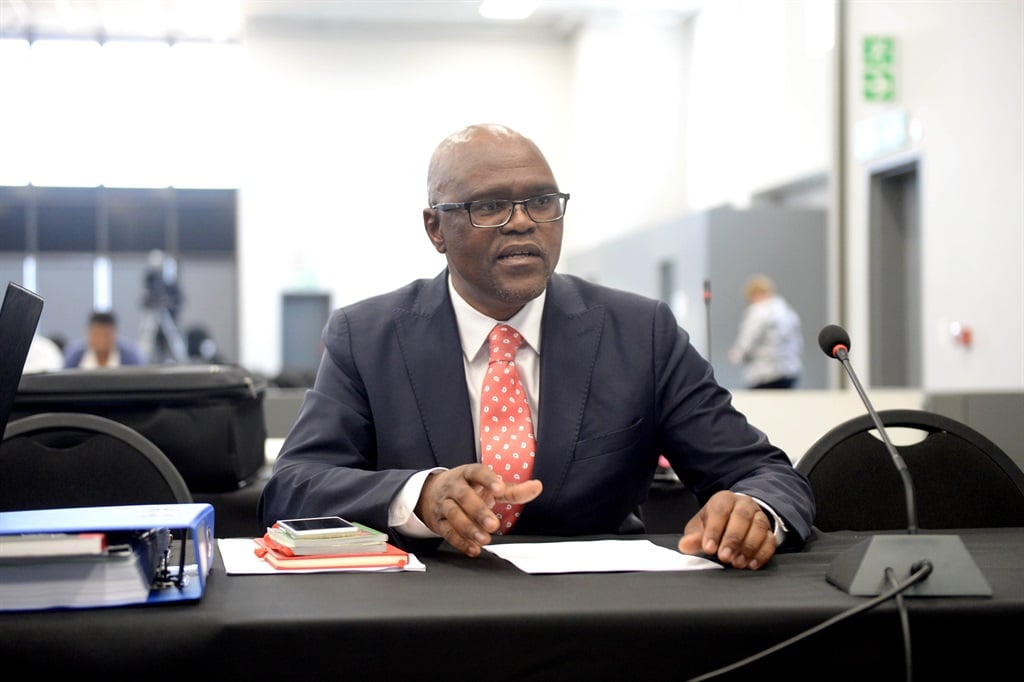
Those sitting on the edge of their seats waiting for arguments of gravitas that would demonstrate the country’s seriousness about accountability and justice, or who were merely awaiting dramatic revelations into the avenues employed in the looting of state coffers during day two of the state capture inquiry, were disappointed.
Tuesday’s proceedings served mainly as a free lesson into laws regulating procurement within state entities although there was a bit of insight into how state entities and government officials could have flaunted these laws for their own gain or those associated with them.
One could only hope that, regardless of how monotonous these lessons into procurement procedures were, at least government officials under whose watch copious amounts of government funds – earmarked for South African citizens – were allegedly looted would have been paying attention.
Treasury acting chief procurement officer Willie Mathebula was the first witness on the stand in the long-awaited judicial commission of inquiry into state capture, which finally got under way on Monday.
Mathebula, a veteran Treasury employee tasked with overseeing the management of government’s procurement system, revealed that 50% of violations to tender procurement processes were an “intentional act aimed at abusing the system”.
He singled out “contract deviations” as the major avenue through which government entities and officials abused the tender procurement processes.
“The question of deviations and variations from procurement procedures has become a gap that has been manipulated by officials and entities to their own ends. You would find an instance where a contract starts off being valued at R4 million but ends up being inflated to R200 million. How is this possible?” Mathebula illustrated.
According to Mathebula, deviations from tender procurement processes are only allowed “under extreme conditions”, particularly during emergencies or life or death circumstances were state entities do not have the luxury of following tender procurement procedures.
“You cannot have vast discrepancies between amounts initially projected during the tender procurement process as compared to the eventual amount that the tender amounts to. Allowances for deviations were and should only be permissible in cases of emergencies not because of government officials’ failure to calculate and project how much a tender will amount to,” said Mathebula.
Apart from inflations in the amount subsequently spent by government entities, officials or organs on tenders, another worrying deviation came in the form of contract extensions.
“It can’t happen that one [government organ] enters into a three-year contract and then the contract is extended for 12 years,” said Mathebula.
Leading the cross-examination on behalf of the commission, Leah Gcabashe asked Mathebula what implementations the Treasury had put in place to ensure that deviations from procurement processes did not become a norm.
“As of May 2011, Treasury implemented a law that deviations or variations in tender procurement process relating to goods and services could only be within a 15% deviation or limited to R15 million while deviations in construction related procurements had a threshold of 20% or R20 million allowance.
“All deviations of more than R1 million are also to be reported to the Auditor-General with an explanation as to why there was a deviation. All deviations are also recorded by the office of the chief procurement officer and the information made public on our website,” said Mathebula.
Mathebula, who has been the acting chief procurement officer at Treasury since 2016, explained that the architecture of the procurement system in South Africa could be described as centralised (at Treasury) but the execution of it was decentralised, in that government departments developed their own supply chain processes.
According to Mathebula, since government departments had their own supply chain processes, and given the fact that government spending on procurement of goods and services was about R800 billion a year, it would not be far-fetched to conclude that government individuals were bound to attempt to flaunt process and procedures for their own gain.
Thrashing out ways in which government officials and entities could flaunt these procurement processes, Mathebula said this could have been particularly true with regards to state-owned entities.
“Given the fact that state-owned entities operated under their own boards and because Treasury gives an allowance to boards to oversee their day-to-day functions as they wish, there had been a lot of reported cases of deviation in tender procurement procedures,” Mathebula said.
Mathebula told the commission that his department saw the need to cooperate with the commission and would be making all documents pertaining to all tender investigations that have been carried out by his department accessible for the commission’s use.
Those awaiting revelations into how the Gupta family were allegedly offering Cabinet positions to government officials, have to be patient until Friday, when former deputy minister of finance Mcebisi Jonas is expected to testify on how he was offered the finance minister position, R600 000 in cash and R600 million into an account of his choice.




 Publications
Publications
 Partners
Partners








